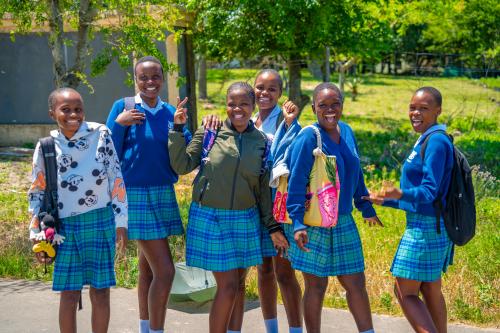The international community has responded generously to the human suffering occasioned by the famine in Somalia. The World Food Program has acted swiftly by providing relief food to millions affected by the famine and vaccines and medical assistance are being offered in Mogadishu and refugee camps to address the spreading cholera epidemic, cases of measles, and acute malnutrition. The response to the famine is not limited to traditional donors such as the United States and European Union; other countries have been generous in their humanitarian assistance, including Saudi Arabia, Sudan and China. With resources continuing to pour in, the long-term consequences of the famine, in terms of the country’s future human capital endowment, must now be given sufficient attention, especially with the limited access to quality educational opportunities by impacted children and youth.
The immediate needs in the region are dire as conditions continue to deteriorate. The consequences of the worst drought in 60 years will extend long beyond the next rainfall. In Somalia, children are among the victims who have suffered the most at the hands of the famine and, without access to learning opportunities, the crisis could set them back for life. A recent study by UNICEF cautions that half of the teachers in southern Somalia will not return to their schools once they reopen due to permanent population movement to the capital and the loss of essential teaching incentives. Additionally, 200,000 children may drop out of school as a result of the famine, adding to the country’s already dismal 33 percent primary enrollment rate.
Severe malnutrition and starvation can handicap children later in life. Research shows that critical brain development occurs from pregnancy to age three and quality early childhood development is a key priority for ensuring that children enter primary school prepared to learn basic literacy and numeracy skills with the rest of their peers. Quality early childhood development opportunities have shown to increase school attendance, lower rates of repetition and attrition, and improve learning achievement. A promising sign in Somalia are the therapeutic feeding centers and supplementary feeding programs. These ensure children receive the nutrients essential for brain development, which will help children not only survive this travesty, but thrive later in life.
Furthermore, children and youth living in conflict and crisis-affected areas often face additional disadvantages and marginalization in accessing quality education. In Somalia, students contend with ongoing security concerns that are now compounded by the challenges brought on by the famine. Together, these conditions have resulted in a massive refugee crisis, with over 400,000 people now living in the Dadaab refugee camp in Kenya, and thousands more outside its gates. Worldwide, a displaced individual lives in a refugee camp for an average of 17 years – a lifetime for those displaced as children or born into refugee camps. Almost half of all children who are not in school live in countries affected by conflict; furthermore, learning outcomes for girls living in conflict-affected regions are among the worst in the world.
In Somalia, emergency assistance to address the famine and health situation is needed immediately and must be the priority of all donors and humanitarian organizations. However, providing education opportunities should also be part of the medium and long-term response to the crisis. Ensuring children have adequate nutrition through school meal programs and receive adequate health care through school-based vaccinations will encourage parents to send their children to school and improve children’s performance while enrolled. Establishing schooling environments – whether formal or non-formal – in refugee camps and providing educators with training and incentives will help create safe spaces for children and youth to receive a quality education. Because of the ongoing conflict in Somalia, some students have already lived in a state of vulnerability for much of their lives. Ensuring youth develop workforce and livelihood skills through opportunities beyond primary school is critical to the development of the next generation of leaders and citizens who can help to stabilize the nation and prevent the next famine. These are all steps that will mitigate the long-term social effects of an otherwise debilitating crisis and help the country rebuild a strong workforce and enhance human capital.
The Brookings Institution is committed to quality, independence, and impact.
We are supported by a diverse array of funders. In line with our values and policies, each Brookings publication represents the sole views of its author(s).



Commentary
Education Is Critical to Tackling the Long-Term Consequences of the Famine in Somalia
August 17, 2011